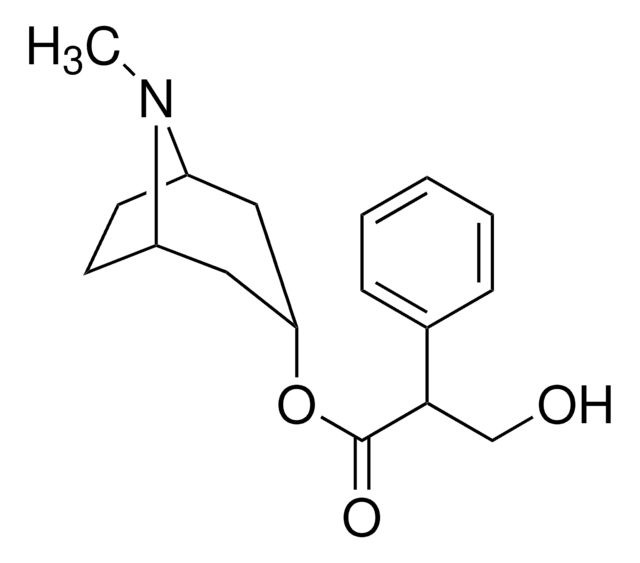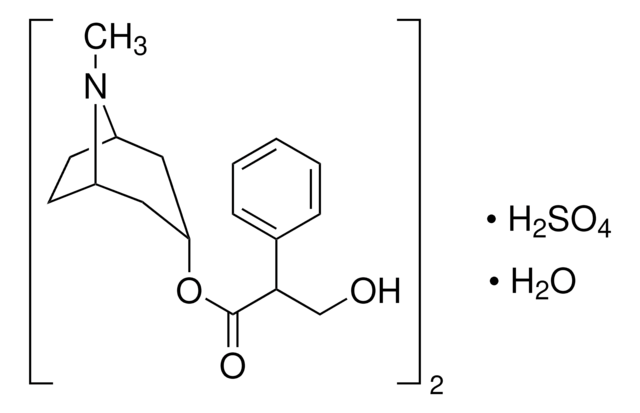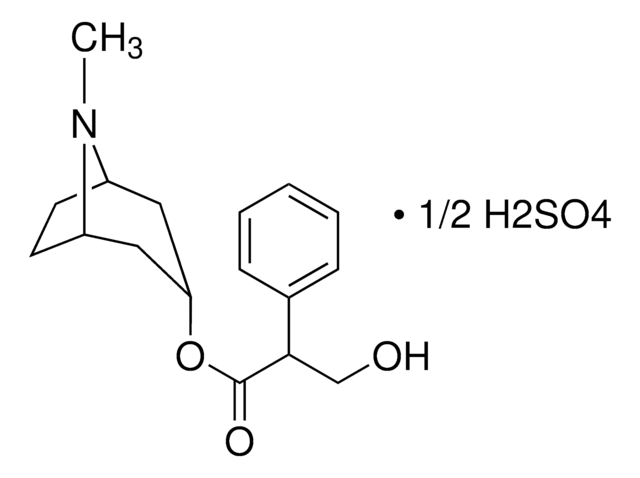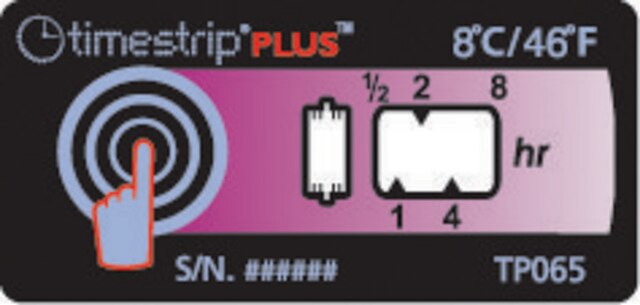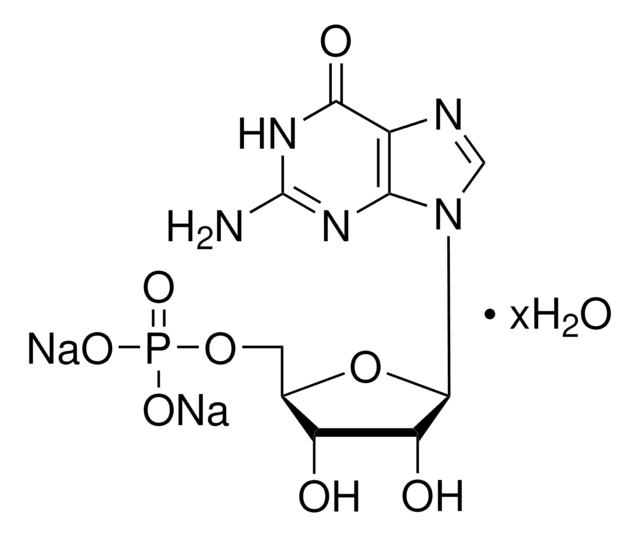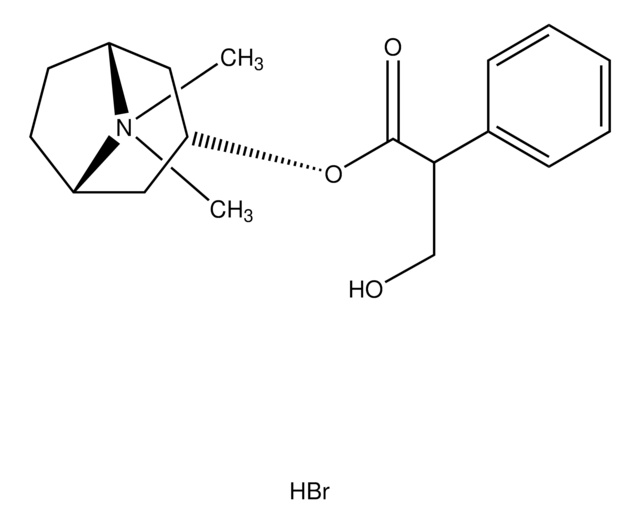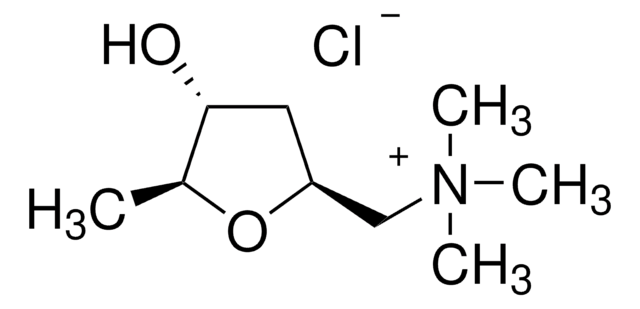A0257
Atropine sulfate salt monohydrate
≥97% (TLC), crystalline
Synonym(s):
α-(Hydroxymethyl)benzeneacetic acid 8-methyl-8-azabicyclo[3.2.1]oct-3-yl ester, Tropine tropate
About This Item
Recommended Products
Quality Level
Assay
≥97% (TLC)
form
crystalline
color
white
mp
189-192 °C (A) (lit.)
solubility
H2O: 2.5 g/mL (stable for several days at 4 °C.)
ethanol: 200 mg/mL (stable for several days at 4 °C.)
glycerol: 400 mg/mL (stable for several days at 4 °C.)
SMILES string
O.OS(O)(=O)=O.CN1[C@H]2CC[C@@H]1C[C@@H](C2)OC(=O)C(CO)c3ccccc3.CN4[C@H]5CC[C@@H]4C[C@@H](C5)OC(=O)C(CO)c6ccccc6
InChI
1S/2C17H23NO3.H2O4S.H2O/c2*1-18-13-7-8-14(18)10-15(9-13)21-17(20)16(11-19)12-5-3-2-4-6-12;1-5(2,3)4;/h2*2-6,13-16,19H,7-11H2,1H3;(H2,1,2,3,4);1H2/t2*13-,14+,15+,16?;;
InChI key
JPKKQJKQTPNWTR-CHYDPLAESA-N
Gene Information
human ... CHRM1(1128) , CHRM2(1129) , CHRM3(1131) , CHRM4(1132) , CHRM5(1133)
Looking for similar products? Visit Product Comparison Guide
General description
Application
- to assay specific binding of high-affinity 3-quinuclidinyl benzilate-3H ([3H]QNB) to the muscarinic acetylcholine receptor (mAChR)
- to block the recovery phase of the aldicarb (Ald) response
- as an analyte for liquid chromatography with tandem mass spectrometry (LC-MS/MS)
- as a mAChR antagonist to block acetylcholine receptor
Biochem/physiol Actions
Signal Word
Danger
Hazard Statements
Precautionary Statements
Hazard Classifications
Acute Tox. 2 Inhalation - Acute Tox. 2 Oral
Storage Class Code
6.1A - Combustible, acute toxic Cat. 1 and 2 / very toxic hazardous materials
WGK
WGK 3
Personal Protective Equipment
Certificates of Analysis (COA)
Search for Certificates of Analysis (COA) by entering the products Lot/Batch Number. Lot and Batch Numbers can be found on a product’s label following the words ‘Lot’ or ‘Batch’.
Already Own This Product?
Find documentation for the products that you have recently purchased in the Document Library.
Customers Also Viewed
Our team of scientists has experience in all areas of research including Life Science, Material Science, Chemical Synthesis, Chromatography, Analytical and many others.
Contact Technical Service